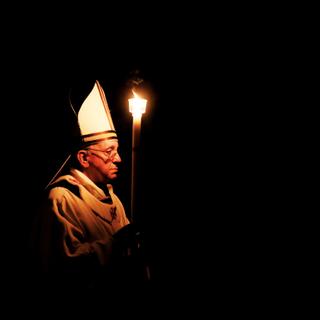
Remembering Pope Francis: A Final Farewell to a Pontiff Who Reshaped the Church
It’s a moment that will echo across generations—Pope Francis, in what would be his final public appearance, stood before thousands in St. Peter’s Square on Easter Sunday, raising his hand to deliver a blessing of hope, compassion, and resilience. At the time, no one knew it would be the last time the world would see him in that familiar setting. Following weeks of hospitalization due to a severe infection that had developed into double pneumonia, his presence that day felt both miraculous and symbolic—a final gesture of love from a man whose life was devoted to healing a broken world.
Just days later, the Vatican confirmed the news that sent a wave of sorrow across the globe: Pope Francis had died at the age of 88. It marked the end of a papacy that had both shaken and inspired the Catholic Church. Elected in 2013, Jorge Mario Bergoglio, the first South American and Jesuit pope, made history not just with his origins but with his actions. A former nightclub bouncer turned spiritual leader, he was never a traditionalist in the expected sense. His legacy is defined by bold reforms, a deep concern for the marginalized, and a firm voice in global issues—from climate change to social justice, from interfaith dialogue to internal Church accountability.
Also Read:- JD Vance’s Brief Yet Symbolic Encounter with Pope Francis at the Vatican
- Thunder Make NBA History With Record-Breaking Playoff Beatdown of Grizzlies
Many hailed him as a courageous innovator, while others in the conservative corners of the Church viewed him as a controversial disruptor. He defied neat labels, choosing instead to walk a path that often blended doctrine with empathy. He spoke harsh truths—comparing abortion to hiring a hitman—yet also offered gestures of surprising inclusivity, like his outreach to the LGBTQ+ community and his call for a more multicultural, diverse society. In a deeply divided world, Pope Francis consistently reminded us of the Church’s role as a sanctuary for all, not a fortress for the few.
Even within the Vatican, he was a reformer unafraid to confront dysfunction. The Curia, long criticized for secrecy and infighting, became the target of his structural overhauls. Financial transparency was no longer an option but a necessity. He brought fresh air into the Vatican’s dusty halls, even when it meant facing resistance from within. His tenure wasn’t without controversy, but it was marked by an unrelenting drive to bring the Church closer to the people, especially those suffering, forgotten, or cast aside.
Pope Francis leaves behind a legacy that will be debated, admired, and studied for years to come. But for many, especially those who stood in that Easter crowd, his final blessing wasn’t just a ritual—it was a farewell from a shepherd who never stopped walking among his flock, even in frailty. In his death, the world loses not just a pope, but a profoundly human voice for mercy, humility, and justice.
Read More:

0 Comments